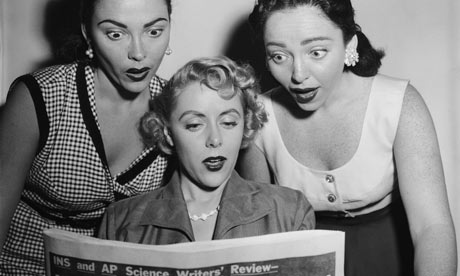As I began reading the first twenty pages of Cormac McCarthy's 'The Road', the novel's fast pace struck me as surprising. Usually, isolation and loneliness would inspire slow transitions between events, yet everything I've seen about the father and his son has happened rather quickly. The short paragraphs go into great detail describing the scenery the characters are in at that moment, cleverly sustaining the speed . This description of the sunrise for example, "(He) watched the gray day break. Slow and half opaque." Less than a sentence later, the father is already "wrapped in his blanket" and "walk(ing) out through the trees". (11). Again, in other books, novels or movies, any scene involving a sunrise tends to represent a new beginning or hope. However, the sunrise described as 'slow and half opaque' does not seem like hope at all. It's definitely a reflection of the dim situation in which the father and son are in. When the author takes the character practically somewhere else with every sentence, the actions lose their meaning, like watching the sunrise, in this case.

Further on in the paragraph the father 'knelt in the ashes' and 'raised his face to the paling day' and asked '(a)re you there?'. (11) its only until the next two sentences that he mentions God. Clearly, the father hasn't lost hope and suddenly, his actions have recovered some sort of meaning. Just like some saints painted in famous portraits calling out to God, this scene is quite powerful as it reflects the father's desperation and pain. The reason why I think this is because the father reminds me of the saints and martyrs that kneel in desperate calls for God (with the sun behind them resembling the Lord's presence) wearing distressed faces.
Just after the father's cry, the paragraph that follows depicts the two walking through the city at noon of the next day. This, once again keeps the novel's pace speedy and it gives the story a certain feeling like its rushed. However, as I analyzed why it was this way, I realized it describes how one cannot wait to stay alive. Basically, if the father and son did not react and travel quickly then the would likely get caught up with the coming season as "There'd be no surviving another winter (t)here." (4) If they didn't hurry to find food, then they would go hungry. The fast pace was much more justifiable once I understood the circumstances of the need for survival which made the reading much more enjoyable, not that I didn't find the fast pace incredibly interesting before.

Further on in the paragraph the father 'knelt in the ashes' and 'raised his face to the paling day' and asked '(a)re you there?'. (11) its only until the next two sentences that he mentions God. Clearly, the father hasn't lost hope and suddenly, his actions have recovered some sort of meaning. Just like some saints painted in famous portraits calling out to God, this scene is quite powerful as it reflects the father's desperation and pain. The reason why I think this is because the father reminds me of the saints and martyrs that kneel in desperate calls for God (with the sun behind them resembling the Lord's presence) wearing distressed faces.
Just after the father's cry, the paragraph that follows depicts the two walking through the city at noon of the next day. This, once again keeps the novel's pace speedy and it gives the story a certain feeling like its rushed. However, as I analyzed why it was this way, I realized it describes how one cannot wait to stay alive. Basically, if the father and son did not react and travel quickly then the would likely get caught up with the coming season as "There'd be no surviving another winter (t)here." (4) If they didn't hurry to find food, then they would go hungry. The fast pace was much more justifiable once I understood the circumstances of the need for survival which made the reading much more enjoyable, not that I didn't find the fast pace incredibly interesting before.

No hay comentarios:
Publicar un comentario